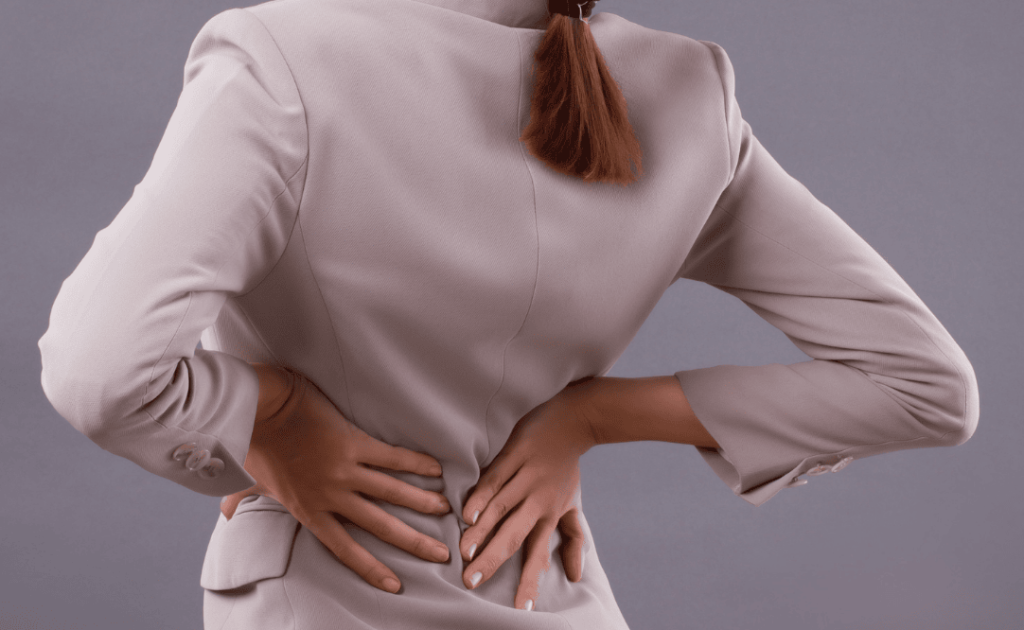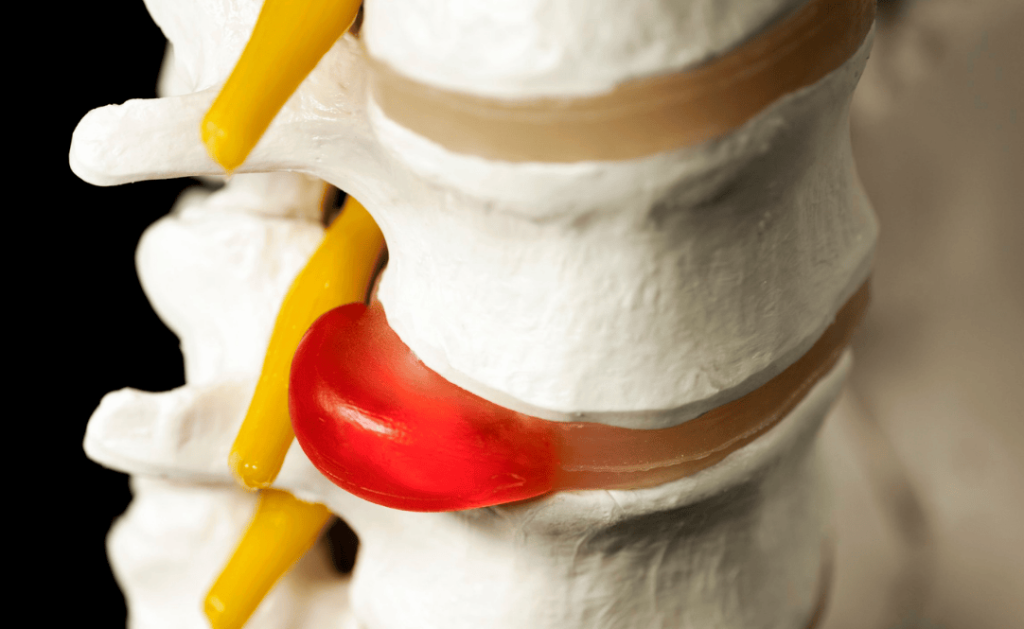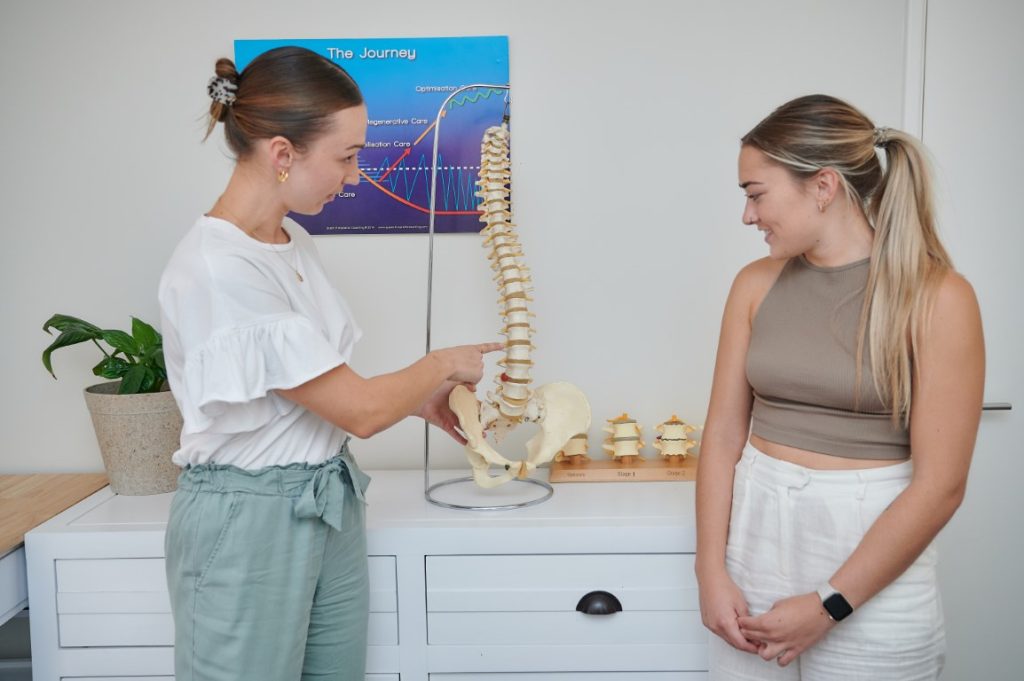Chiro for herniated disc


If you’ve ever dealt with a herniated disc, you’ll know that it can be incredibly painful and oftentimes debilitating.
It can often restrict our mobility and compromise our quality of life, but don’t worry – we can help reduce your pain and improve your mobility.
Our dedicated team of experienced chiropractors are well-versed in various techniques specifically designed to alleviate the pain from herniated discs.
By relieving nerve compression, we not only aim to diminish your immediate discomfort but also guide your body toward natural, sustainable healing.
Symptoms of a herniated disc

- Persistent pain in the lower back or neck, ranging from a dull ache to a sharp, burning sensation, typically centred around the herniated disc area.
- Radiating pain, numbness, or weakness in the arms or legs due to nerve compression by the herniated disc, causing discomfort along the nerve pathway.
- Tingling sensations or "pins and needles" resulting from the herniated disc's pressure on nerves, interrupting normal nerve function.
- Pain intensifying with movement or at night as certain positions or activities increase pressure on the herniated disc.
- Unexpected muscle weakness occurring if the herniated disc presses on nerves connected to specific muscle groups, leading to reduced strength or coordination.


Causes of a herniated disc

- Natural aging and disc degeneration: Over time, our intervertebral discs lose their flexibility, elasticity, and shock-absorbing characteristics. These changes can lead to disc herniation.
- Heavy lifting or straining, especially when done improperly: Lifting heavy objects, particularly without proper form, can put a great deal of stress on the lower back and contribute to disc herniation.
- Trauma or injury to the spine: Accidents or injuries can cause immediate disc damage or contribute to gradual wear and tear.
- Repetitive strenuous activities or movements: Regularly engaging in activities that put pressure on the spine can gradually wear down disc material, leading to herniation.
- Obesity: Carrying extra weight, particularly around the midsection, increases the strain on the discs in your lower back.
Preventing and managing a herniated disc

- Regular exercise to maintain a strong and flexible back: Physical activity helps keep the discs between the vertebrae in your spine healthy by ensuring that they receive a good supply of nutrients.
- Proper lifting techniques: Always bend at your knees, not your waist. When lifting heavy objects, bend your knees and use the strength of your legs, not your back. Keep the object close to your body, and don't twist while lifting.
- Maintain a healthy weight: Extra weight, particularly around the belly, puts additional stress on the discs in your lower back.
- Good posture: When sitting, choose a chair that supports your spinal curves and try to stand or walk with your shoulders back and spine straight.
- Frequent breaks from prolonged sitting or standing: Changing positions or walking around every so often can relieve the constant pressure on your spine.
- Seeking timely chiropractic care: Early intervention often leads to better outcomes. A chiropractor can provide treatments designed to alleviate pain, reduce inflammation, and promote natural healing of a herniated disc.


Chiropractic care for a herniated disc

Chiropractic care effectively manages herniated discs through non-invasive techniques that restore spinal function and reduce nerve irritability.
Adjustments improve spinal function and posture which alleviates pressure and inflammation on the disc and nerves. This approach reduces pain, improves your range of motion and promotes natural healing.
With regular care, symptoms can decrease, and overall function improves.
Chiropractic care also provides valuable knowledge and tools for home management, including exercises, lifestyle modifications, and nutritional advice to support healing and prevent future disc problems.
Reduce your herniated disc pain with tailored chiropractic treatment
At Karrinyup Wellness Centre, we view every patient as a whole rather than just a set of symptoms.
We are dedicated to enhancing your well-being and returning you to a life of comfort and activity.
Embrace the journey towards a healthier spine with us – because everyone deserves a life free of back pain.
Book an appointment now.
Other conditions that can be treated with chiropractic adjustments:
- Headaches
- Migraines
- Arthritic conditions
- Neck Pain
- Sciatica
- Back injuries
- Lower back pain
- Chronic Pain
- Sport Injuries
- Wrist, elbow and shoulder pain
- Foot, knee and hip problems
- Muscle Spasms and injuries
- Dizziness and vertigo
- Numbness, pins and needles
- TMJ Disorders
- Postural problems
- Whiplash
- Plantar fasciitis
- Stiffness
- Carpal tunnel
- Sports performance
- Decreased range of motion
Get in Touch
With Us
Whether you are a new client to us and have questions, or an existing client needing to re-book, the process is easy!
Call or email us today! We are here to help.
Frequently Asked Questions
Can chiropractic care cure a herniated disc?
Chiropractic care cannot cure a herniated disc, but it can help manage symptoms and promote healing.
How long does it take to see results from chiropractic treatment for a herniated disc?
The time to see results from chiropractic treatment for a herniated disc varies, but improvements can often be experienced within a few weeks.
Are there any specific chiropractic techniques used for treating a herniated disc?
Our chiropractors may use various techniques such as spinal adjustments, spinal decompression, and therapeutic exercises to treat a herniated disc.
Will chiropractic adjustments for a herniated disc be painful?
Chiropractic adjustments for a herniated disc are typically gentle and non-painful, but some temporary discomfort may occur during the treatment.
Can chiropractic care prevent the need for surgery in treating a herniated disc?
Chiropractic care may help alleviate symptoms and reduce the need for surgery in some cases, but the decision for surgery should be made in consultation with a healthcare professional.
Is chiropractic care safe for all individuals with a herniated disc?
Chiropractic care is generally safe for individuals with a herniated disc, but it’s important to consult with a chiropractor to assess your specific condition and determine the appropriateness of treatment.
Are there any exercises or stretches that can complement chiropractic care for a herniated disc?
There are exercises and stretches that can complement chiropractic care for a herniated disc, such as core strengthening exercises and flexibility exercises for the spine.
How many chiropractic sessions are typically needed to treat a herniated disc?
The number of chiropractic sessions needed to treat a herniated disc varies depending on the severity of the condition and individual response, but several sessions are typically required.
Can chiropractic care be combined with other treatment options for a herniated disc?
Chiropractic care can be combined with other treatment options for a herniated disc, including physical therapy, pain medications, and lifestyle modifications.
What can I do at home to support my chiropractic treatment for a herniated disc?
To support chiropractic treatment for a herniated disc, you can follow the chiropractor’s recommendations, practice good posture, engage in regular exercise, and avoid activities that may aggravate the condition.




